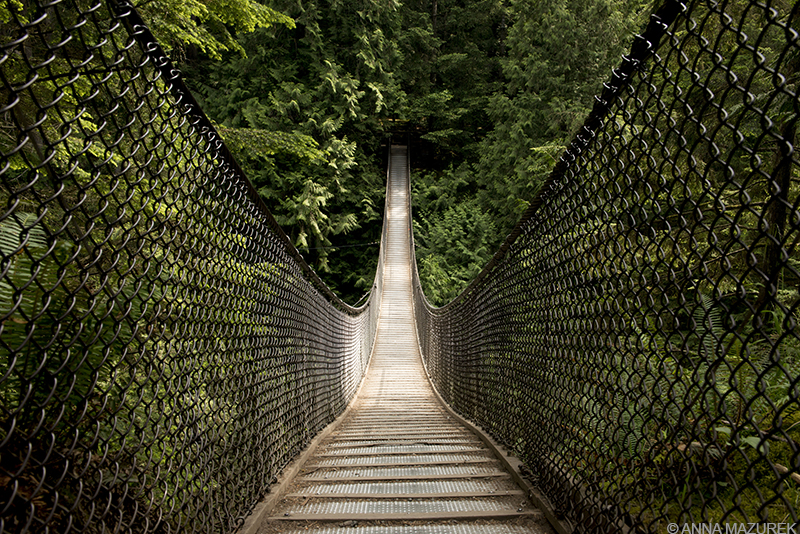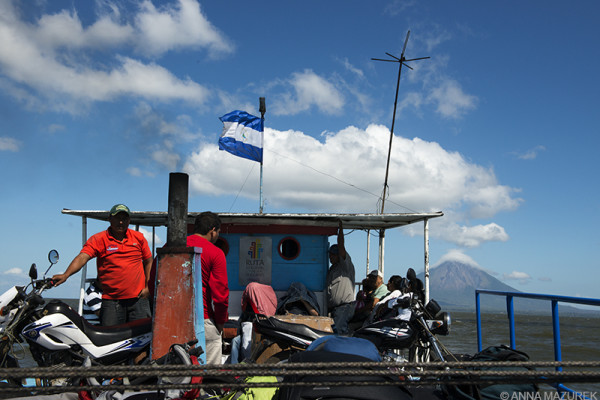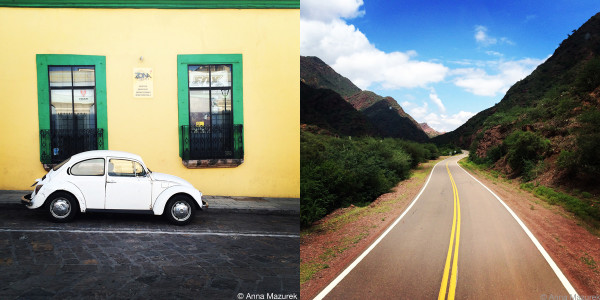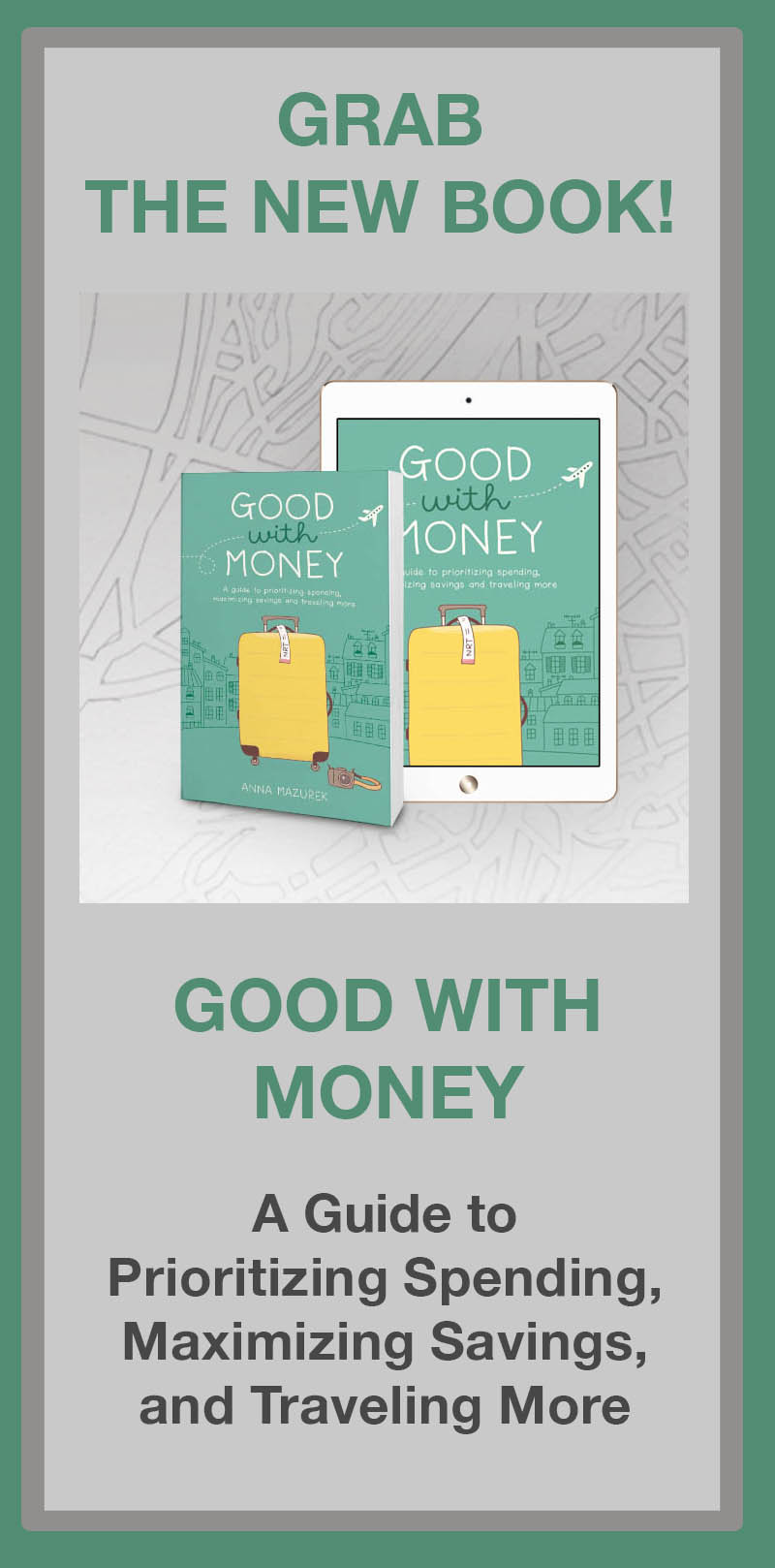
I have this silly fear of heights, which makes suspension bridges like this the scariest part of my travels at times.
Exchanging money on the black market in Argentina is always an adventure. It is just like the plot of a spy movie except – sadly – there is no Jason Statham. The movie started when a friend of a friend (an expat) gave me an address to a building in the swanky part of Buenos Aires with no sign and blinds covering the windows. I rang the doorbell, and the door buzzed open. As the door automatically locked behind me, I panicked. Was I about to die? Or was I just being overly paranoid as usual? After negotiating rates with a Che Guevara lookalike, I was walking down the sidewalk fifteen minutes later with a purse full of pesos and feeling good about my spy skills.
Due to Argentina’s high inflation, the black market is used by literally everyone because the rate is almost 50% higher than the ATM. I did my research beforehand, went to a reputable place and thoroughly checked the bills as I counted them at the counter. I checked again at my apartment, which confirmed my fear was overzealous as usual.
Despite what my mother and the news say, the world is actually a safe place. (Motorized vehicle accidents are the leading cause of unnatural deaths for Americans abroad, according to the New York Times.) I have traveled solo to five continents since 2002; safety is always my top concern. I want to dispel some fears with tips about how to stay safe in case you find yourself living in a spy movie while roaming the globe.
I’ve had my share of mishaps – my purse was stolen in Thailand and again in Barcelona because I was not paying attention—which were both good lessons that helped me stop a pickpocket in Buenos Aires and will hopefully help you as well.
Here are a few tips to help manage your fear and stay safe:
Traveling Warnings & Country Specific Concerns
- Check travel warnings. Before booking flights, research health, environmental, political and terrorism concerns in your destination. Americans should check travel.state.gov for warnings and sign up for the STEP Smart Traveler Program, which provides free email updates.
- Read recent travel guides. These are a good resource for reported safety incidents and high theft areas. (Personally, I felt the safest traveling solo in Japan, Europe, Australia/New Zealand and most of Southeast Asia. I also felt safe in Cuba and Burma. My guard was higher in parts of Mexico, Peru, Nicaragua, Bolivia and India.)
- Avoid areas with military conflicts/elections. Keep in mind that smaller elections may not make international headlines. (I was stuck in Northern Chile for a week due to combination of bad weather that closed the border to Bolivia and rumors of election protests blocking roads across the border. The snow and protests faded a few days later.)
- Dress culturally appropriate. Ladies, be sure to cover up in conservative cultures to avoid unwanted attention. Be respectful when visiting temples. (Some places in Thailand make you rent shawls if you are wearing tank tops or shorts.) Baggy harem pants are a good option for hot places like India and are great for preventing mosquito bites. Both men and women should avoid fancy jewelry and watches especially on public transport.
Get Travel Insurance
The key to insurance is simple: You insure what you can’t afford to pay yourself. I ALWAYS have travel medical insurance that covers emergency evacuation, trip interruption, adventure sports and end of trip coverage (after long-term trips). Most policies will not cover phones and will only pay a flat fee (usually $250) for other electronics. (I insure my camera gear and my Mac separately with State Farm’s Personal Articles Policy.) Many credit cards also include travel insurance benefits like baggage delay, trip interruption and accident coverage.
I always cancel my normal health insurance for long-term trips because American polices have very limited international coverage. Instead, I opt for a zero deductible travel medical policy, which offers better coverage overseas at a fraction of the cost ($30-50/month). I’ve used International Medical Group for years, and they pay claims within 30 days. (I have no affiliation with them.)
Check the Weather
Prices usually drop in the low season for a reason: monsoon season. Be aware of transport issues during monsoon/hurricane/typhoon season. In some places like Thailand, the monsoon season just means a little rain each day. In other places like the Philippines, it means dangerous conditions that can halt transport for days.
Safe Transport
- There is no price for safety. Never risk your safety to save money.
- In high risk areas, avoid local buses for long routes and pay a little extra for private buses. In Peru, I always used Cruz del Sur buses because they were the safest company with private bus stations, secure luggage claim and safe taxis options.
- Never grab a taxi off the street in areas with high crime. Have your hotel, hostel or a restaurant call one instead. Safe radio taxi companies operate in major cities including Meru in India and Tappsi in Colombia.
- Avoid arriving late at night in countries with safety concerns like India, Central America, Peru and Bolivia. If you are taking overnight transport, be sure to arrive during daylight hours in these areas.
- Write down the address of your destination on a piece of paper to hand to the taxi driver. Never give the driver your phone to see the address.
- Research local taxi regulations to ensure your taxi is marked properly before getting inside. Guidebooks and receptionists are good resources.
Tips for Avoiding Theft
- Never carry EVERYTHING with you. Only take the money you need when you go out for the day. Hide your money, passport and credit cards in many different places. The more obscure (like cough drop bags), the better.
- Lock valuables and passports in safes or lockers at hotels/hostels. (I never stay in a hostel that doesn’t have lockers. I bring a sturdy combination lock to secure it. Avoid flimsy suitcase locks and giant high-school-locker-style locks, which are usually too big.
- Watch your bags in crowded places, restaurants and public transport in high risk areas like Barcelona. Put your leg through your bag strap when standing/sitting. Do not hang purses/bags on the back of restaurant chairs or put them in the upper racks on local buses. Keep bags in your lap or at your feet.
- Do not put your phone in your back pocket or lay it on a restaurant table. Break the habit immediately. I always keep mine in my purse, which is always in my lap with the strap across my body.
- Watch your bags on public transport. If you have a purse, ALWAYS keep your hand over the zipper. Move all items in your pockets to one of your front pockets. Keep your hand inside the pocket to secure items. Put your backpack in front of you in crowded places or lock zippers with a suitcase lock.
- Watch out for counterfeit money in places with high inflation. Be aware of all proper watermarks and holograms for the local currency. Check your change carefully in taxis and street markets especially when you are breaking a large bill. Even if you end up with counterfeit currency, don’t worry—it can be passed off fairly easy in street markets. (I was given some fake currency on my last day in Peru. I made a game of spending it all before I left and succeeded!)
- Don’t go into the backrooms (non-public areas) of shops. Have the vendor bring items to the main area. If a shop vendor in India offers you tea, politely decline.

Overweight ferries are a huge safety concern. Don’t take this Ometepe, Nicaragua ferry. ALWAYS get the larger car ferry. (I thought THIS was the biggest ferry at the time.)
Trust your Instinct
Would you walk around the rough parts of your hometown at 2 a.m. with $1,000 cash in your pocket? No? Then, don’t do it abroad! Use common sense. Also, watch your partying. Alcohol and drugs impair your judgment and make you more vulnerable to thieves. (Many of the robberies I’ve heard about in my recent travels happened at night when people were partying or walking alone late at night.) If your gut instinct tells you something is even the slightest bit weird, get out of the situation immediately! Don’t worry about being rude. Get out!
Ask the Locals
I always ask locals for safety advice. Hotel receptionists, guides and expats are great resources. (I never stay in swanky hotels but have no qualms walking into one to ask the concierge about safety concerns.) Is it safe for a foreigner to take a local bus or visit a certain area of town? Do they feel safe in that part of town? If they don’t feel safe or think I won’t be safe, then I avoid the area or the time of day. Other travelers are a great resource as well.
COMING UP NEXT: A Guide to Buenos Aires (my FAVORITE city in the world!)


